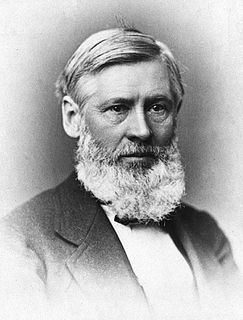A Quote by Asa Gray
Is it philosophical, is it quite allowable, to assume without evidence from fossil plants that the family or any of the genera was once larger and wide spread? and occupied a continuous area?
Related Quotes
Quite early on, and certainly since I started writing, I found that philosophical questions occupied me more than any other kind. I hadn't really thought of them as being philosophical questions, but one rapidly comes to an understanding that philosophy's only really about two questions: 'What is true?' and 'What is good?'
There was something that was killing the people in the interior, in the forest area, of the country, and nobody quite knew what it was. That lasted a good three months before it was officially declared that it was Ebola virus. So it started off in Guinea and spread quite slowly, but then spread over the border into Sierra Leone and Liberia.
There is not a morsel of evidence backing up any of the claims or any of the narratives or any of the premises that make up today's news. There is not a morsel of evidence on anybody. There's not a morsel of evidence on Flynn! On Manafort! On Carter Page! There's no evidence on Trump! And yet the reporting goes on. Convicted of high crimes already without a trial. It's a great piece by Eli Lake.
What kills love? Only this: Neglect. Not to see you when you stand before me. Not to think of you in the little things. Not to make the road wide for you, the table spread for you. To choose you out of habit not desire, to pass the flower seller without a thought. To leave the dishes unwashed, the bed unmade, to ignore you in the mornings, make use of you at night. To crave another while pecking your cheek. To say your name without hearing it, to assume it is mine to call.
The hardest part about gaining any new idea is sweeping out the false idea occupying that niche. As long as that niche is occupied, evidence and proof and logical demonstration get nowhere. But once the niche is emptied of the wrong idea that has been filling it:; once you can honestly say, "I don't know", then it becomes possible to get at the truth.
You told me once of the plants that lie dormant through the drought, that wait, half-dead, deep in the earth. The plants that wait for the rain. You said they'd wait for years, if they had to; that they'd almost kill themselves before they grew again. But as soon as those first drops of water fall, those plants begin to stretch and spread their roots. They travel up through the soil and sand to reach the surface. There's a chance for them again.
In the first place a philosophical proposition must be general. It must not deal specially with things on the surface of the earth, or within the solar system, or with any other portion of space and time. . . . This brings us to a second characteristic of philosophical propositions, namely that they must be a priori. A philosophical proposition must be such as can neither be proved nor disproved by empirical evidence. . . . Philosophy, if what has been said is correct, becomes indistinguishable from logic as that word has now come to be used.





































